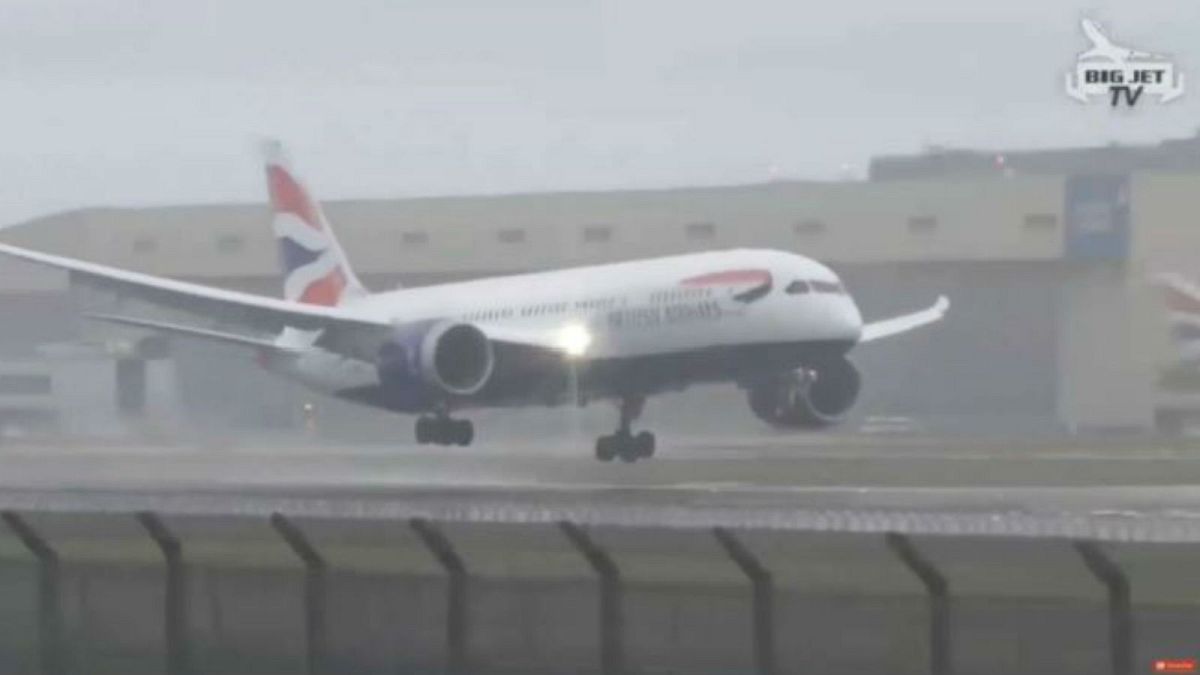Do not panic! Pilot explains why aborted landings or go-arounds are common during windy conditions and are considered a "safe" procedure.
Storm Erik has badly affected air traffic in the UK this week but one pilot told people not to panic if they saw videos of aborted landings online.
Scott Bateman, an active pilot, said that this was actually a common manoeuvre pilots make when a plane is destabilised by a wind gust. The pilot warned against sensationalist headlines.
The manouevre seen in the video above is known as a go-around in aviation terminology. It refers to the aborted landing of an aircraft.
In a Twitter thread, Bateman explained that pilots were very methodical when opting for a go-around.
"Most approaches start a long way from the airfield. The pilots will get the weather and assess the likely 'threats'. In the case of wind, they will verbalise & practice manoeuvres such as a go-around as well as setting acceptable and safe parameters for the day," he wrote.
The pilot said that all airlines have what is called "stabilised approach criteria," which are mandated parameters that must be maintained when landing a plane. If the pilots can't assure the stabilised approach criteria, they must find a safe manoeuvre that will allow them to do so, hence the go-around approach.
Batema said that a go-around "shows that prudent decisions were made to ensure the safety of the aircraft, customers, and crew by professionals doing there job."
